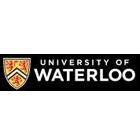- 最新消息
- Find usIDP AustraliaIDP BahrainIDP BangladeshIDP CambodiaIDP CanadaIDP ChinaIDP EgyptIDP GhanaIDP Hong KongIDP IndiaIDP IndonesiaIDP IranIDP JordanIDP KenyaIDP KoreaIDP KuwaitIDP LebanonIDP MalaysiaIDP MauritiusIDP Middle EastIDP NepalIDP New ZealandIDP NigeriaIDP OmanIDP PakistanIDP PhilippinesIDP Saudi ArabiaIDP SingaporeIDP Sri LankaIDP TaiwanIDP ThailandIDP TurkeyIDP UAEIDP VietnamIDP Corporate
- Social
- 繁體中文(台灣)
- Where we operate
- Courses
- Scholarships
- IELTS
- About IDP
- 留學生活服務
- 最新消息
- Find us
- Find us
- Find nearest IDP offices
- IDP Australia
- IDP Bahrain
- IDP Bangladesh
- IDP Cambodia
- IDP Canada
- IDP China
- IDP Egypt
- IDP Ghana
- IDP Hong Kong
- IDP India
- IDP Indonesia
- IDP Iran
- IDP Jordan
- IDP Kenya
- IDP Korea
- IDP Kuwait
- IDP Lebanon
- IDP Malaysia
- IDP Mauritius
- IDP Middle East
- IDP Nepal
- IDP New Zealand
- IDP Nigeria
- IDP Oman
- IDP Pakistan
- IDP Philippines
- IDP Saudi Arabia
- IDP Singapore
- IDP Sri Lanka
- IDP Taiwan
- IDP Thailand
- IDP Turkey
- IDP UAE
- IDP Vietnam
- IDP Corporate
- Social
- 切換語言
- IDP 教育 /
- 學院及大學 /
- Canada /
- University of Waterloo /
- Doctor of Philosophy in Phy...

Doctor of Philosophy in Physics - Quantum Matter
At UNIVERSITY OF WATERLOO
地點
Canada
資格
Ph.D.
費用
CAD22188
(2025)
時長
4 Year(s)
下個學年
08 May 2025
入學成績
7.0
雅思考試COURSE_INFO
Our Physics program is one of the largest and most comprehensive in Canada, offering courses in applied physics, astrophysics, biophysics, chemical physics, mathematical physics, or quantum computing, at both the graduate and undergraduate levels. Our research-intensive department focuses on five areas of research: astrophysics, biological physics, condensed matter physics, optics, and quantum computing, with faculty members specializing in theoretical, experimental and computational tools. If you are interested in pursuing further study in Physics and Astronomy, you have come to the right place The Graduate Studies in Physics (GSiP) program is one of the largest physics & astronomy graduate programs in Canada and among the largest in the world. Our tradition of collaboration and innovation allows us to offer students a rich and varied graduate experience unlike no other. The Department of Physics and Astronomy at the University of Waterloo is amongst the top 100 Physics and Astronomy departments in the world (QS rankings 2020), and is home to a wide range of ground-breaking and award winning research, including the 2018 Nobel Prize in Physics. We are a key part of Waterloo's burgeoning physics ecosystem that also includes partnering institutes and centers such as the Institute for Quantum Computing, the Perimeter Institute for Theoretical Physics, the Waterloo Institute for Nanotechnology and the Waterloo Center for Astrophysics. In the PhD Physics program students work closely with a graduate supervisor (determined prior to admission) to perform original research in an area of physics, culminating in a PhD thesis.
New generations of materials are constantly being discovered experimentally and predicted theoretically that confound our conventional understanding of how metals, insulators and semi-conductors work. These new materials, classified as Quantum Materials, involve strong-correlations between electrons or magnetic moments, quantum entanglement, topology or frustration, and lead to emergent phenomena like superconductivity, magnetic monopoles or topological insulators phenomena that are often intriguing for both a fundamental understanding of materials, but also for their vast technological potential.
New generations of materials are constantly being discovered experimentally and predicted theoretically that confound our conventional understanding of how metals, insulators and semi-conductors work. These new materials, classified as Quantum Materials, involve strong-correlations between electrons or magnetic moments, quantum entanglement, topology or frustration, and lead to emergent phenomena like superconductivity, magnetic monopoles or topological insulators phenomena that are often intriguing for both a fundamental understanding of materials, but also for their vast technological potential.
- 獎學金 查看所有獎學金
- 實習
入學要求 University of Waterloo
Normally a Master's degree in Physics, with at least a 75% standing.
Students with an undergraduate degree in Physics may apply for admission directly to the PhD program. Successful applicants will have an outstanding academic record, breadth of knowledge in physics, and strong letters of recommendation.
Graduate Record Examination (GRE) Physics subject test scores for all students who have completed their post-secondary education outside of Canada.
Three academic references
Proof of English language proficiency, if applicable. TOEFL 90 (writing 25 speaking 25), IELTS 7.0 (writing 6.5, speaking 6.5)
Students with an undergraduate degree in Physics may apply for admission directly to the PhD program. Successful applicants will have an outstanding academic record, breadth of knowledge in physics, and strong letters of recommendation.
Graduate Record Examination (GRE) Physics subject test scores for all students who have completed their post-secondary education outside of Canada.
Three academic references
Proof of English language proficiency, if applicable. TOEFL 90 (writing 25 speaking 25), IELTS 7.0 (writing 6.5, speaking 6.5)
申請截止日期
申請截止日期無法使用 與顧問對談 了解更多細節資訊
Further information
If you aren't eligible for the above entry requirements, you might ant to explore pathway options at University of Waterloo. If you want to find out more, speak to our counsellors.
推薦給你
- 博士
- Canada
- 資金類型: Fee waiver/discount
- 博士
- Canada
- 資金類型: Fee waiver/discount
- 博士
- Canada
- 資金類型: Other Discount
Your action plan
步驟 1
Shortlist your courses
Choose the best three courses you’re most likely to pursue.
步驟 2
Check your eligibility
Get an instant in-principle offer for courses with the IDP FastLane tag.
步驟 3
Apply through IDP Live
Fill out the form once and use it to apply to multiple courses.
IDP FastLane 如何運作?
通過FastLane OIP,你將在幾分鐘內知道自己是否獲取錄!
選擇一個院校機構和課程
建立個人學術檔案
提交 OIP 申請
你選擇的機構將會在幾分鐘內發送結果!
與留學顧問一起準備申請




